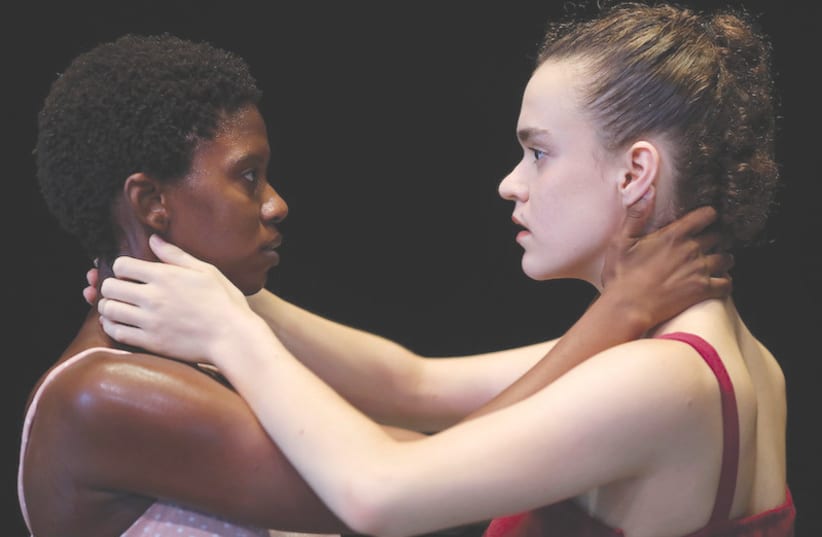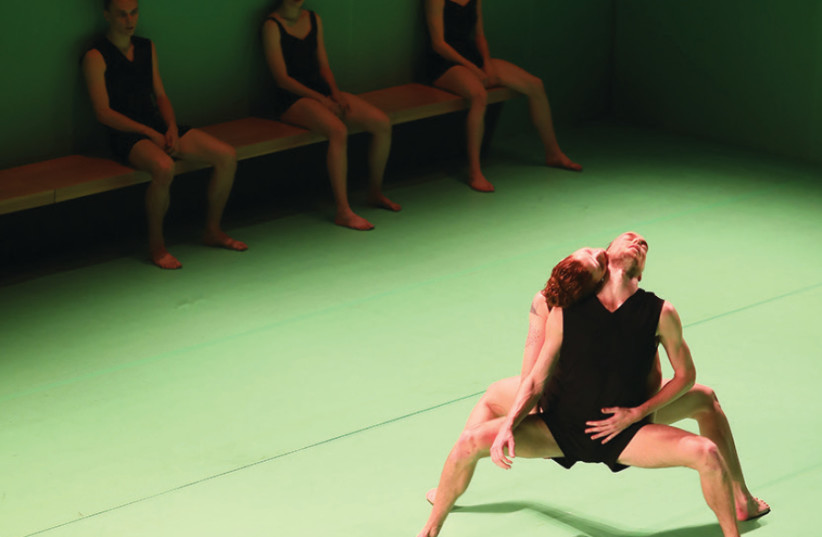With great love comes great responsibility. To be loved, beyond becoming the recipient of warmth and affection, means one must take into consideration the feelings of the source of that feeling. This is often complicated.
As Israel’s most beloved dance company – Batsheva Dance Company – walks a tricky line with its audience. The Batsheva viewers are passionately committed to the troupe, they love the work and show up to see it in drones. This creates an interesting challenge for the company’s leadership, who strive to innovate while keeping their fans satisfied.
“It’s important for us to find a good mix of new and old works, of creations that push the dancers to new places while keeping the legacy of the company present in the programming,” said Artistic Director of Batsheva Dance Company and Ensemble Gili Navot.
Over juice in the blooming garden of Dallal, steps away from Batsheva’s deluxe building in the Suzanne Dellal Center, Navot spoke of the coming season. She was cautious, not wanting to provoke the COVID-19 gods to strike down on the plans so carefully laid out for the coming months. However, it was clear the Navot is happy to get the company back on track and to return, if not to the full rhythm of pre-coronavirus days, then at least to something reminiscent of those times.
“Things are going really well,” she said. “We just finished our first performances of Decale. We got through the tough period stronger and more unified. The last couple of years have created a bit of a bottleneck of pieces; we spent a lot of time getting works ready that couldn’t perform so we now have a very rich repertoire at hand. We got to enjoy lots of time in the studio, which we don’t usually have. This season, the company will perform Venezuela, Yag, 2019 and Hora by Ohad Naharin as well as Summer Snow by Ella Rothschild. In the Ensemble, we will bring back Three by Ohad Naharin as well as Decadance and Kamuyot. In January, Bobbi Jene Smith will make a piece for the Ensemble. We will have the Dancers Create series for both the company dancers and the Ensemble dancers. Last year Ohad made a film of Yag, now he is working on filming Hora.”
USUALLY NAVOT would have made some hard casting choices between seasons regarding the Ensemble dancers. In the Ensemble, or young company, each dancer may spend up to three seasons before either progressing to the main company or moving on. However, this year, Navot decided to forego the changing of cast members. “I invited everyone to stay for another season and they could decide if they wanted to or not. One dancer moved up to the main company and two decided to move on. I felt that they didn’t fulfill the experience of being in the Ensemble last year, which includes performing and touring. I felt it would make too shaky an atmosphere to make that change now and it felt right for them to enjoy the full experience before going forward.”
This choice, on which breaks from the very regimented schedule that Batsheva functions, is one of many examples of Navot’s conscientious leadership. The company could not have found a better captain to sail through the troubled Covid waters of the past two seasons. Along with keeping her young cast on for an extra year, Navot found every opportunity to keep her dancers performing, even when restrictions limited the possibilities. “We took every opportunity there was to perform,” she explained.
For the dancers, going back and forth between lockdowns and work was not only a mental challenge but a physical one. “They came to know themselves as dancers not through performances, audiences, and applause but in the studio. Coming back to a full schedule meant having to get their bodies ready to perform once again. We worked very closely with them to prepare them for these moments, otherwise, they would have been at risk for injury.” Navot went on to say that it was critical for her that the dancers feel they were supported during the down periods. “We put our staff on unpaid leave but never the dancers.”
In addition to the company functions, Batsheva continues to develop the school program, now in its third year. The program, geared towards high school students, trains young dancers in the Gaga movement language and teaches company repertoire. “The school is inseparable from the company at this point as are all of our educational programs,” she said.
And the company will continue to cultivate the digital side of its work, which Navot sees as a positive outcome of the restrictions. “The online activities allow as exposure to completely new crowds. We are in a process of understanding which materials are suitable for online, as we can’t just copy-paste our live work from the stage to the screen. That has been a source of real expansion in our research,” said Navot. Online Gaga classes will continue to run, bringing Batsheva’s expert teachers into the living rooms of dancers all over the world.
For more about Batsheva Dance Company, visit www.batsheva.co.il

